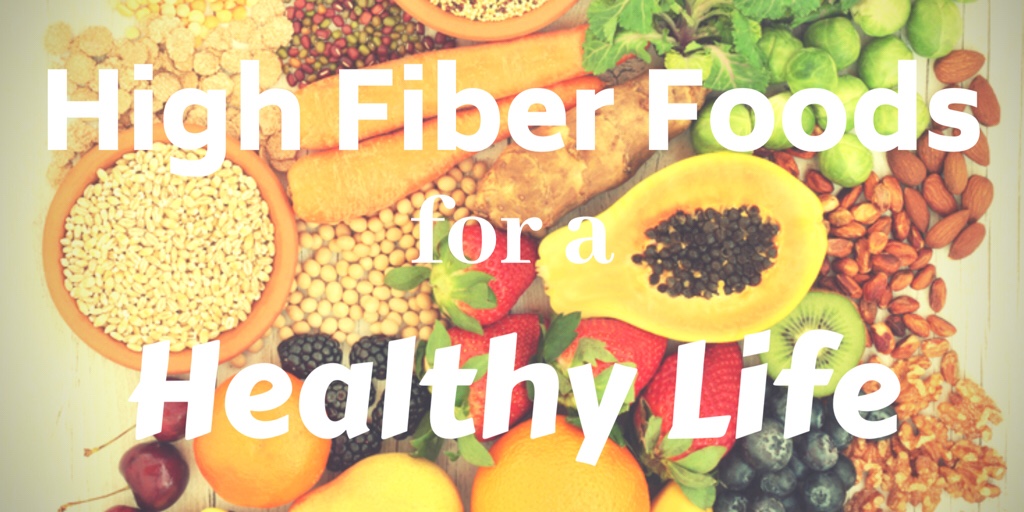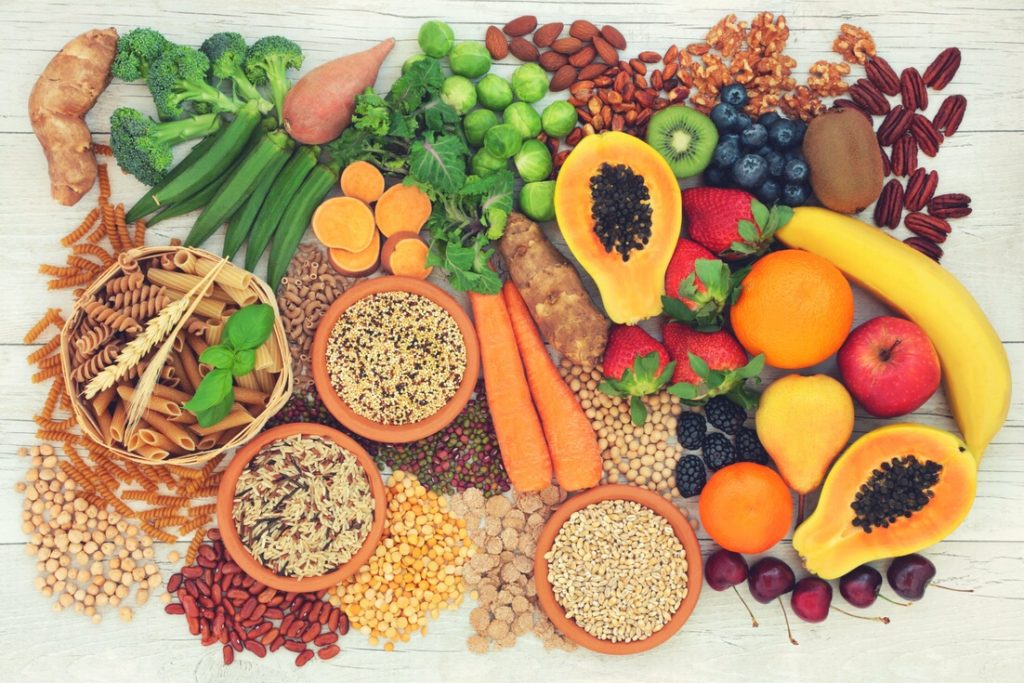
If you are going to change one thing about your diet and lifestyle, try adding more fiber.
An important note: When increasing your fiber intake, do this slowly and ensure you drink a LOT of fluids to avoid constipation.
Let’s dive right in!
Why do we need Fiber?
High fiber foods are important to digestion and regularity, weight management, blood sugar regulation, cholesterol maintenance and more. A diet of fiber rich foods has also been linked to longevity and decreasing the risk of cancer.
High fiber foods supply us with vitamins and minerals to keep our immune system at it’s best. If we do not eat enough fiber rich foods then we are at risk of developing one of these health issues.
What does Fiber do?
Dietary fiber is sometimes called roughage or bulk and is a plant-based nutrient that cannot be broken down by digestion. Therefore, fiber simply passes through the intestinal tract relatively intact. The term “dietary fiber” refers to the indigestible parts of plant-based foods. Fiber is a type of carbohydrate, but unlike starches and sugars, fiber contributes no calories.
The function of fiber is to absorb water, which causes swelling, providing bulk inside the digestive tract. This helps to keep things soft and moving along nicely through the body. This is also why it is essential to increase your water intake when eating high fiber meals to avoid constipation.
There are two types of fiber, insoluble fiber and soluble fiber. Soluble fiber dissolves in water to form a gel like material. It helps to lower blood cholesterol and glucose levels. Insoluble fiber promotes the movement of material through the intestines and increases bulk. Both soluble fiber and insoluble fiber are present in all plant foods in varying amounts.
How much Fiber a Day?
The recommended daily dosage for fiber in men and women under 50 is, 38 grams and 25 grams respectively. For over 50’s, it is 30 grams for men and 21 grams for women each day. Across the globe, we tend to consume much less than this. In the UK, it is well below this, less than 18 grams per day according to the British Nutrition Foundation. It is time to change this!
Foods that contain Fiber:
There are many nutritious fiber rich foods that are great sources of fibe. Fruits, vegetables and legumes (beans, lentils) are the most ideal sources of high fiber foods. Other foods that contain fiber include oatmeal, wholewheat, whole grains, brown rice, couscous, barley, nuts and flax seeds.
We tend to eat a lot of bread and grain based foods, so here is a list of our favorite high fiber fruits and vegetables for you to add to your healthy meals. This list is by no means exhaustive, but is a great starting point for high fiber meals.
High Fiber Vegetables
- Brocolli
- Zucchini
- Cabbage
- Cucumbers
- Dark Leafy Greens
- Beans
- Celery
- Butternut Squash
- Pumpkin
- Artichoke
- Sweet Potatoes
- Carrots
High Fiber Fruits
- Apples
- Pears
- Oranges
- Strawberries
- Blueberries
- Dried Prunes
- Grapes
- Raspberries
- Blackberries
- Tomatoes
- Avocado
High Fiber Foods and Weight Control:
When it comes to weight loss and weight management, fiber is extremely helpful and should be a highly considered factor in your weight loss plan. Fiber has NO CALORIES, and because it bulks food in the digestive system, fiber makes you feel fuller longer and reduces hunger levels.
Fiber Hack: Try eating a small bowl of chunky vegetable soup before your main meal, this will increase your satiety and result in you eating less calories whilst increasing your fiber intake.
Call To Action:
If you make one change in your life to improve your health, it should be to increase your fiber intake. Studies have shown that people who focus on increasing fiber rather than reducing calories, or watching what they eat, have had similar weight loss and improved health.
At HEALTHY MindBodyLife we question how we can be our best healthy selves for our friends, family and community.
Therefore, we are freely sharing our Nutritional Immunity Assessment (NIA). It is a short survey with immunity, environmental and nutritional based questions to give you an indication of how to best support your immunity.
In 2020, good immune health is more important than ever for you and your family and we really hope our NIA can help support this. check out our Nutritional Immunity Assessment here.
Please subscribe to receive our fortnightly email full of free inspirational articles on wellness, yoga, nutrition and more!
Love and Light
Lauren and Joe x

